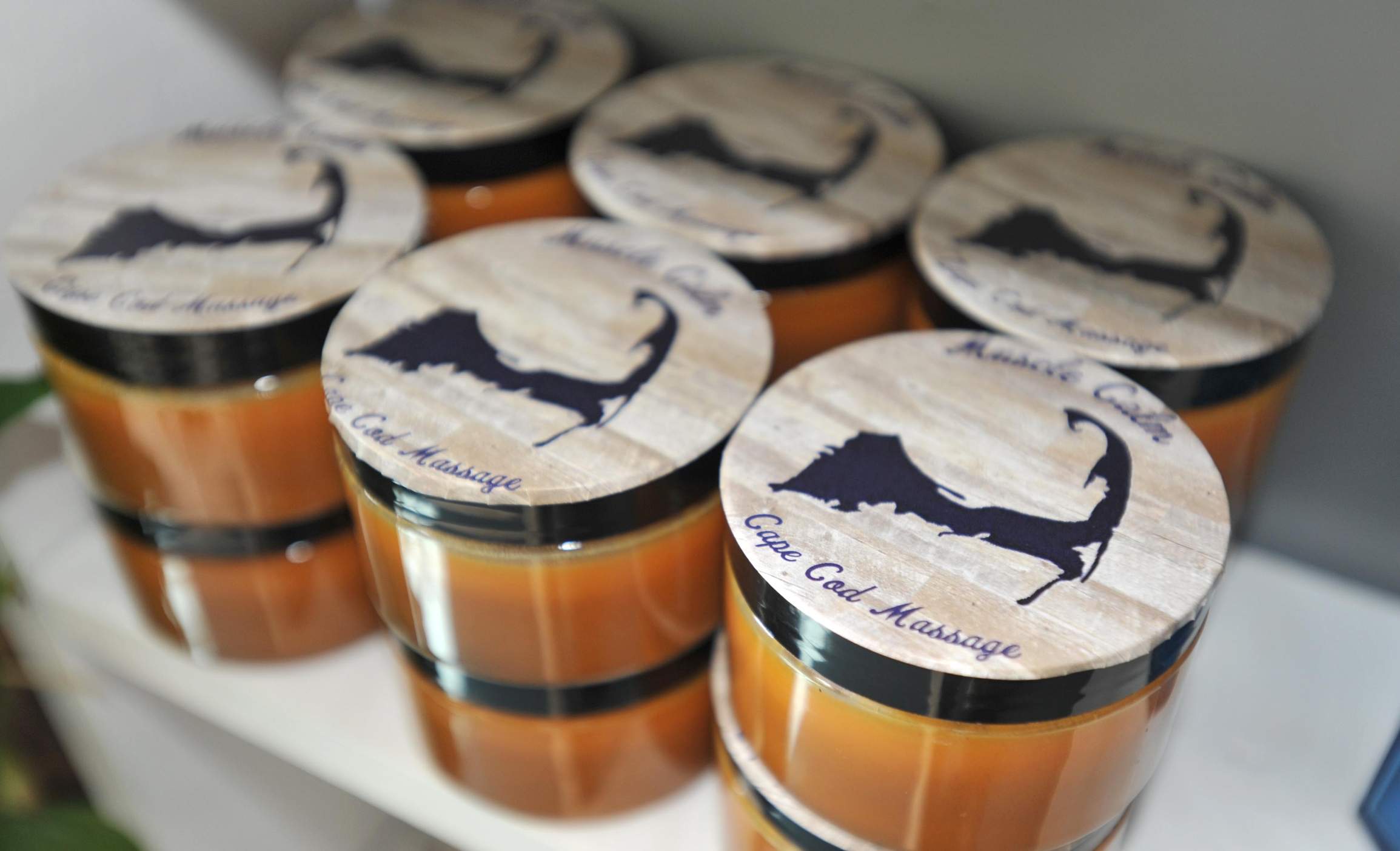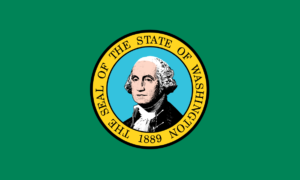Cannabidiol changed Jody Nelson’s life.
While the Marstons Mills resident tried marijuana in college, she never grew to enjoy using the drug. But when her massage therapist, Sarah MacDonald, approached Nelson about a treatment using cannabidiol, or CBD — one of dozens of compounds found in marijuana — Nelson jumped at the chance to find natural relief from the pain and inflammation caused by an autoimmune disease.
“When I first saw her, I was so inflamed,” Nelson said of her massage treatments. “Everything she did hurt.”
That all changed when MacDonald, a co-owner of Cape Cod Massage in Marstons Mills, offered Nelson an orally ingested liquid that includes CBD and began performing massages on Nelson with a CBD-infused balm.
“When I put my hands on her back, all the inflammation was gone,” MacDonald said as she recalled Nelson’s first massage after taking the CBD orally. “I couldn’t believe it — it gives me goosebumps talking about it.”
After marijuana was legalized in Massachusetts by voters in November, MacDonald said she moved forward with offering CBD in May after her research suggested she had the all-clear to sell the products. But there’s a potential problem: CBD products and most other aspects of the marijuana economy are still unregulated in Massachusetts. In an industry that has historically been black and white before shifting to shades of gray since the drug was decriminalized in 2008, lawyers say the sale of CBD products like those used by MacDonald fall into a still unclear area as regulations are developed.
State officials are still choosing members for the Cannabis Control Commission, which is expected to start its work in the coming months. The commission will set up regulations for the industry — the law itself is silent on some of the particulars of legal marijuana — including rules for the licensing of retail recreational dispensaries for the drug. It’s not until the dispensaries are open that seed-to-sale retail transactions will be totally legal.
For now, it’s legal to possess, use and grow marijuana. That means people like Nelson shouldn’t expect police to seize her vial of CBD fluid. But people who sell recreational weed are still breaking the law.
So what does that mean for MacDonald, who says her product has only trace amounts of THC, the principal psychoactive compound in cannabis that gets the user high?
“The crime that she is committing is a regulatory one,” attorney John Swomley said. “There’s no legal marijuana businesses yet.”
Another gray area: MacDonald says her product is different than the CBD-containing hemp oils that have long been available at head shops and health food markets. Many of those products are made from the stalks of industrial-grade hemp plants — cannabis with low levels of THC that are used for fiber. Such plants are legal to import. Some oil producers advertise their products as “legal in all 50 states” because the plant from which the oil is created contains 0.3 percent THC or less, a legal definition used by the federal government for hemp.
MacDonald says her CBD fluid, too, is made from a low-THC form of cannabis that is also high in CBD. But unlike other CBD products, her oil is from whole marijuana flowers, the part of the plant that you would smoke. It still contains less than 1 percent THC, she said.
She purchases it from an Arizona company called OneBode, which is run by her cousin Tylene Loomer, a Cape Cod native, and Loomer’s husband, Sean Loomer. Neither responded to requests for comment about their production methods.
Marijuana activist William Downing says the legal hair-splitting of hemp versus marijuana is nonsense.
“Hemp has been grown industrially for well over 10,000 years by humans,” he said. “When they were growing it for fiber do you think they cared whether there was THC in it? This whole thing about ‘oh, how much THC is in it?’ is based on reefer madness.”
In Downing’s case, authorities were very interested in how much THC was in the CBD oil he was selling at his Boston storefront. CBD Please in Allston was raided by Boston police in 2015 after undercover officers bought several vials of CBD oil, which Downing said was purchased from a supplier that billed the product as legal nationwide despite its trace amounts of THC. His products and money were seized, he said.
The case went to court, where Swomley defended Downing. The two state chemists who tested the oils did not agree whether they should be classified as marijuana or a THC product, which is in a lower class of drug than weed itself. The criminal charges against him ultimately were dropped; Downing admitted responsibility to seven noncriminal administrative violations that each came with a $200 fine, according to a Suffolk County District Attorney’s Office spokeswoman.
Today, Downing is back in business in Waltham, where he says a building inspector has recently started giving him trouble due to the nature of his wares.
“I have a moral duty because I know what I know,” Downing said about why he reopened. “I got a call from a cancer patient and she needs CBD. What am I going to tell her?”
At a Senate hearing in 2015, Nora D. Volkow, director of the National Institute on Drug Abuse, said that CBD has a range of effects that could be medically useful, including anti-seizure, antioxidant, neuroprotective, anti-inflammatory, analgesic, anti-tumor, antipsychotic and anti-anxiety properties. But despite promising preliminary data, further study is necessary to understand the efficacy and safety of using CBD to treat people with epilepsy, for example, she said.
CBD is available for purchase at various locations on Cape Cod.
MacDonald charges $5 extra for a massage using her homemade CBD-infused muscle balm. Massage prices start at $80. She also sells the balm and the OneBode CBD liquid.
MacDonald said she moved forward with offering the products after speaking with a staffer at the office of state Sen. Julian Cyr, D-Truro. But despite saying there were no “red flags” with what she was proposing, that person told MacDonald that Cyr’s office does not offer legal advice and that MacDonald should speak to a lawyer.
In a statement, Cyr said state officials should make it a priority to quickly set up the Cannabis Control Commission to put an end to similar questions.
“The legislation enacted by the Legislature and signed by the Governor in July answered many of the questions that had been left unaddressed by the ballot initiative language passed in November. However, the voters directed the Commonwealth to establish an entirely new regulated industry from scratch and with it will come a myriad of questions,” the statement says. “I’m sure there will be need for further action by the legislature in future years — states that have gone before Massachusetts have refined their laws several times since initially adopting recreational marijuana — but the immediate need is for the CCC to get up and running.”
Legal experts and others say there’s unlikely to be an appetite among law enforcement to go after CBD sellers with the rules still in flux.
Cape and Islands District Attorney Michael O’Keefe recalled an instance “years ago,” prior to legalization, when law enforcement cracked down on convenience stores that were selling CBD products. With the legalization of marijuana and regulations forthcoming, O’Keefe agreed that sale of such products today exists largely in a gray area. Testing would be required, and if his office determined a law is being broken, it would prosecute, O’Keefe said.
But, he said, some things are still black and white.
“The one thing that remains crystal clear is the selling or delivery or giving of these products to minors remains a crime,” he said. “The police will enforce those and we will prosecute those.”
Link – Cape Cod Times







































